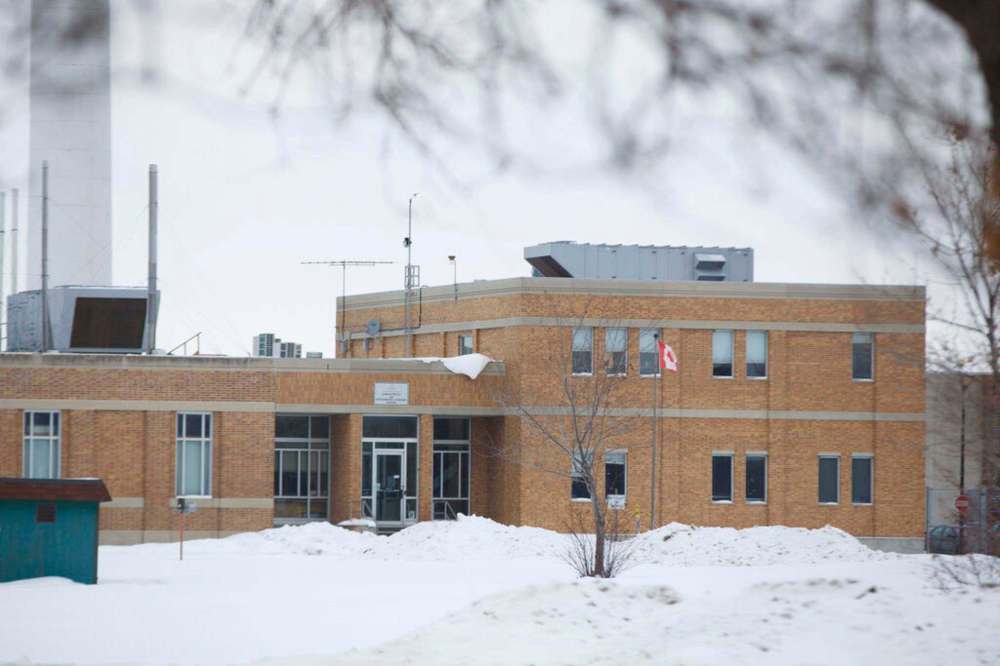City to review sewage treatment agreements with RMs
Advertisement
Read this article for free:
or
Already have an account? Log in here »
To continue reading, please subscribe:
Monthly Digital Subscription
$0 for the first 4 weeks*
- Enjoy unlimited reading on winnipegfreepress.com
- Read the E-Edition, our digital replica newspaper
- Access News Break, our award-winning app
- Play interactive puzzles
*No charge for 4 weeks then price increases to the regular rate of $19.00 plus GST every four weeks. Offer available to new and qualified returning subscribers only. Cancel any time.
Monthly Digital Subscription
$4.75/week*
- Enjoy unlimited reading on winnipegfreepress.com
- Read the E-Edition, our digital replica newspaper
- Access News Break, our award-winning app
- Play interactive puzzles
*Billed as $19 plus GST every four weeks. Cancel any time.
To continue reading, please subscribe:
Add Free Press access to your Brandon Sun subscription for only an additional
$1 for the first 4 weeks*
*Your next subscription payment will increase by $1.00 and you will be charged $16.99 plus GST for four weeks. After four weeks, your payment will increase to $23.99 plus GST every four weeks.
Read unlimited articles for free today:
or
Already have an account? Log in here »
Hey there, time traveller!
This article was published 01/12/2020 (1821 days ago), so information in it may no longer be current.
The City of Winnipeg may take a second look at how much sewage it can treat for rural municipalities, amidst fears local capacity could reach its limit in just a few years.
On Tuesday, council’s water and waste committee directed civic staff to report on ways to mitigate the demands of service-sharing agreements providing sewage treatment for the RMs of Rosser and West St. Paul, in exchange for a fee.
Both deals currently have no limit on the amount of sewage to be treated.

The committee also voted to direct staff to attempt to negotiate a change to a proposed sewer service-sharing agreement for the RM of St. Andrews. That aims to restrict the deal to serve a maximum of 1,800 homes over the next decade, if council approves.
“We can’t have everybody scrambling and competing to get the last little bit of space that’s left. We’ve got to work together,” said Coun. Brian Mayes, water and waste committee chairman. “As the space dwindles here, we need to have a plan.”
A city report warns Winnipeg’s current sewage treatment system can only process sewage sludge from about 90,000 more people into what’s known as “biosolids.”
A $1.8-billion upgrade of Winnipeg’s north end sewage treatment plant is expected to increase biosolids capacity by 2028, as long as the massive project secures senior government funding and stays on schedule.
However, without changes to control current demand or with any delay in those upgrades, the capacity could be exhausted, Mayes warned.
“We’re really saying we may have to slow down residential or industrial development in the city because we are somewhere between five years and nine years from now going to hit our limit… unless we get going on the biosolids facility up at the north end (facility),” he said.
Mayes said he understands why some Winnipeggers may question the city’s plans to finalize a new sewage agreement for St. Andrews, while Winnipeg is facing local capacity limits. However, he said the city committed to provide that service several years ago, and infrastructure has already been put in place to support it.
All of the changes would require full council approval.
joyanne.pursaga@freepress.mb.ca
Twitter: @joyanne_pursaga

Joyanne is city hall reporter for the Winnipeg Free Press. A reporter since 2004, she began covering politics exclusively in 2012, writing on city hall and the Manitoba Legislature for the Winnipeg Sun before joining the Free Press in early 2020. Read more about Joyanne.
Every piece of reporting Joyanne produces is reviewed by an editing team before it is posted online or published in print — part of the Free Press‘s tradition, since 1872, of producing reliable independent journalism. Read more about Free Press’s history and mandate, and learn how our newsroom operates.
Our newsroom depends on a growing audience of readers to power our journalism. If you are not a paid reader, please consider becoming a subscriber.
Our newsroom depends on its audience of readers to power our journalism. Thank you for your support.

